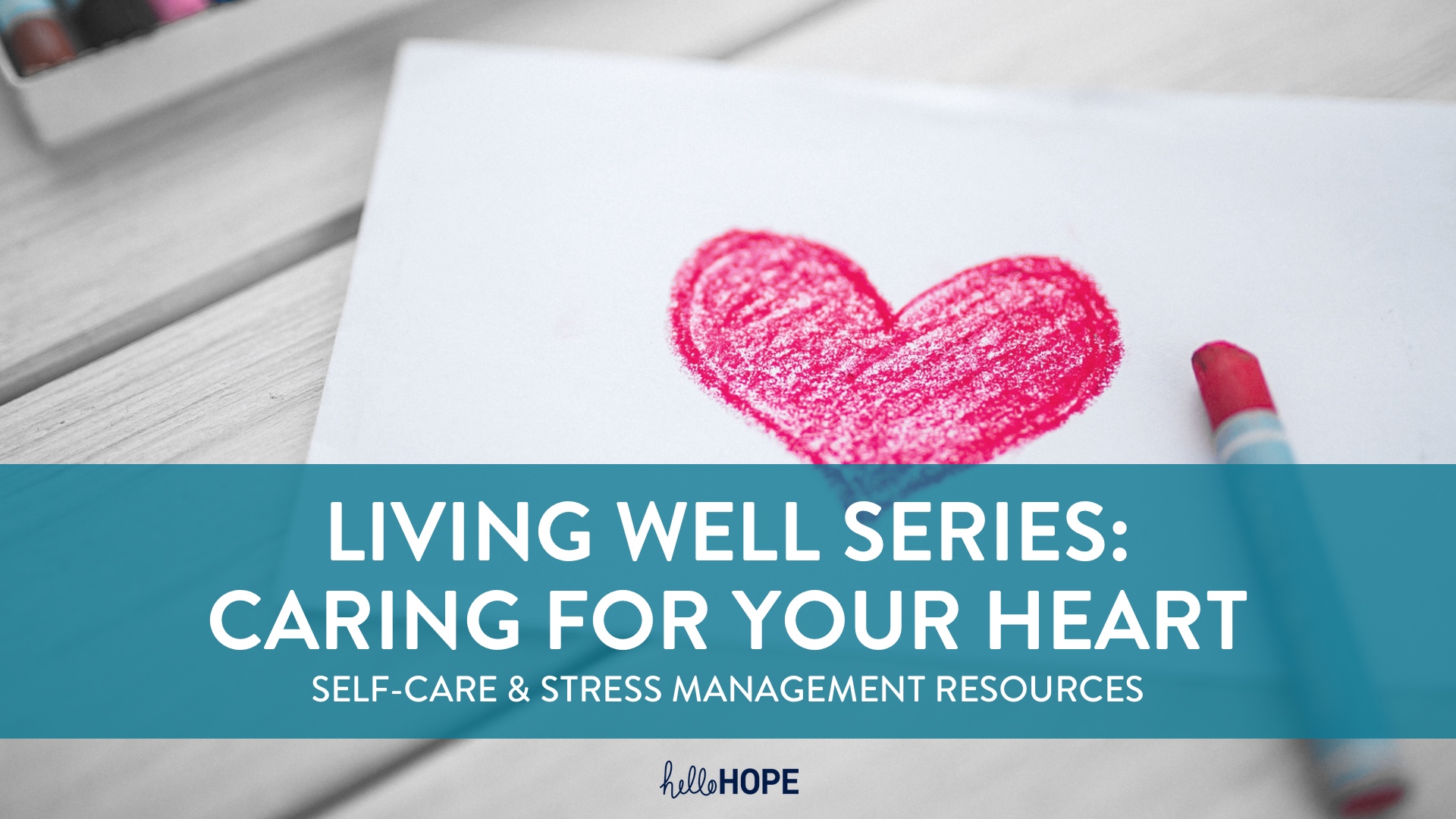Managing Stress and Taking Care of Your Heart: Living Well Series Part 3
Today is the last post in our series on self-care and stress management for the whole family with our friend Elisa Torell, who is changing the world through her work as a Licensed Marriage & Family Therapist. Caring for your heart is a topic that we saw the effects of first hand, and we've been watching healing take place in our hearts since some of the early experiences in our journey with Audra’s EoE illness. This is another resource that would have been invaluable to us at that time, and many of these tips we are trying to work into our life now. Enjoy!!
—
We talked about caring for your body and caring for your mind in the last posts in this series, but there is one more piece that may help you in managing stress with medical challenges—your heart. There are actually some practical ways to engage your heart and help your family to do the same.
How to Manage Stress by Caring for Your Heart
Talking about how you are feeling can seem challenging and unnatural to many people. Maybe your family never really talked about things when you were a kid. Perhaps it seems hard to know what to say when your child is upset. After all, it’s hard enough to know what to say or think when YOU are upset. Talking about feelings, validating them, and teaching your kids how to walk through this process will equip them not only with a skill for dealing with the present challenge, but with a skill they will need their entire lives.
Mad, Sad, Rad, Glad
Make time once a day (maybe over a family meal) to go around and share what made you feel mad, sad, rad and glad during the day. This gives your family a chance to both connect about the day and also identify how those events made you feel. Parents should participate too, teaching kids how to talk about what they are going through in a simple, kid-friendly way. If kids are young, use exaggerated facial expressions to go with each emotion to teach them what each of those emotions might look like. Caution: this is not a time to discipline or shame anyone for how you are reacting or feeling, just to express. It’s important for that circle to be a safe place to talk and share!
Make believe play
Using dolls, figures or props, have your kids make up a story about something that happened that day, especially that was hard. Maybe even have your child be the one to comfort the doll or character that felt sad or upset. It can give you insight into how your kid is feeling and also give you a chance to teach them how to comfort themselves when it was a hard day.
Seek support
Talking with someone individually or as a family can be extremely helpful in times of transition and difficulty. Support groups and counseling are two ways to give your heart an extra measure of care and support in tough times.
Finally, make time for fun. You and your family may be dealing with a lot, but laughter and play are good medicine for the mind, body, and heart. Weekly family time or special outings are important for creating a sense of “normal” and providing relief for you and your whole family.
Read Elisa's next posts on managing stress: Part 1: Caring for your body and Part 2: Caring for your mind.
—
Elisa is a state licensed Marriage and Family Therapist at Fountain Gate Counseling Center in Kennesaw, GA. She works with individuals, couples, and families dealing with a variety of issues including anxiety and depression in the midst of life transitions. More information about Fountain Gate and her practice can be found here.













